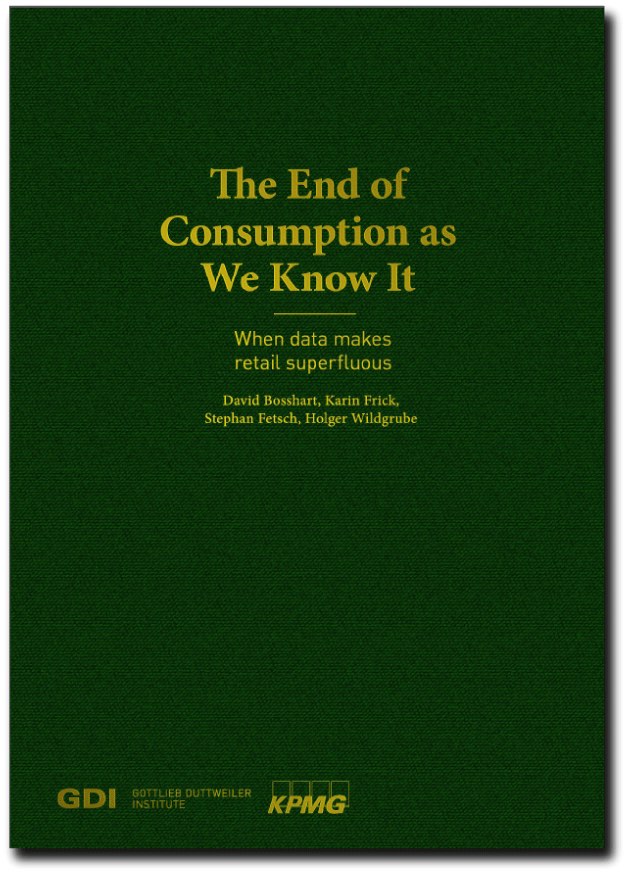The End of Consumption as We Know It
When data makes retail superfluous
Authors: David Bosshart, Karin Frick, Stephan Fetsch, Holger Wildgrube
GDI Report No. 46 in collaboration with KPMG
Languages: German, English
2019
"Banking is necessary. Banks are not." Bill Gates’ prediction for the financial industry in 1994 is prescient for the retail industry 25 years later. The terms "retail" and "department store" will become extinct, replaced by distribution platforms or technology companies. Physical stores full of stuff will become irrelevant; they will become entertainment centres enabled by technology. Strategies for marketing products will also change. People will still have basic physical needs to be satisfied by commodities, but how desire for these goods is triggered, how the supply chain delivers these products and how they get into the hands of the consumer are changing radically.
Imagining the future of retail as a linear growth of online sales (which will result in the extinction of a number of legacy store brands) falls far short of the mark. The entire retail industry is facing pulverization. This revolution is driven by the power of data and analytics, the Internet of Things (IoT), as well as by emerging disciplines typically unrelated to classic retail: artificial intelligence (AI), neurotechnology, augmented and virtual reality and new time/spatial experiences.
The music industry is a case study for the future of the retail industry. Music is still in demand and a healthy business; music stores have disappeared. The Dream Team that managed the music business from topdown control has morphed into the Stream Team. Today’s music consumers access, house and share files via streaming technology. The day of owning hundreds of vinyl and CDs is over (with the exception of serious collectors), and that’s what has basically wiped out the retail music business. Spotify, iTunes and Pandora changed a whole industry and this pattern can be applied to other industries, notably department store retail.
